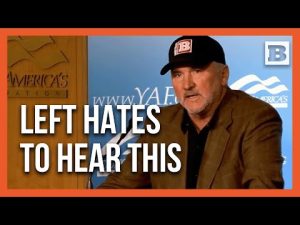Only the Democrats could try to reinvent the wheel with a quaint sit-in protest, stamping it as a fresh political maneuver. This week, in a nostalgic nod to 1968, they perched themselves on the Capitol steps, certain they’d strike the chords of activism, the kind that once might have been accompanied by psychedelic music and a noticeable absence of common sense. Today’s sit-in, sans groovy flair, was more like a sluggish game of musical chairs—sans the music and, one might argue, sans meaningful purpose.
Apparently, the event kicked off after an exhaustive twelve-hour sit-in, intended to highlight their opposition to budget-related issues. One wonders if they dreamed of the days when sit-ins did more than obstruct the daily commute.
When they finally took their seats on the Capitol steps, their sit-in seemed to have the stealth of an invisible blockade, because anyone with business to conduct there had already focused on other activities. While the Capitol sat mostly undisturbed, the group tried to rally support for their array of policies – from opposing Republican budget plans to voicing concerns about social program cuts.
The protest’s highlight included a unique moment of solidarity, led by various activists, as the gathered crowd meticulously practiced solidarity in their efforts. It was a moment rich in focus that could only be enhanced by a senator’s speech. Enter Senator Cory Booker, who eloquently merged discussions on budget concerns with calls for moral urgency.
While Booker waxed poetic about courage in economic matters, he wove in his dreams of cultural transformation with clarity. As always, his speeches evoke that puzzling mix of passion and commitment. There’s a certain charm in witnessing someone so dedicated to impactful discourse.
As the Democrats sat, President Trump was busy making headlines. Untouched by the protest’s dedicated efforts, he continued with his agenda. He seemed to show how governance might be achieved through different approaches. But credit where credit’s due; this brave sit-in sought to move the needle of public opinion towards awareness over effectiveness.







